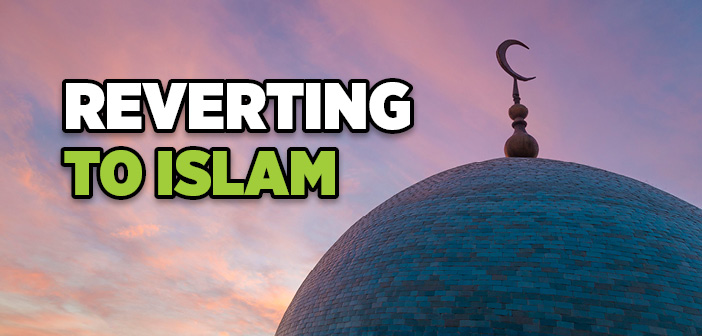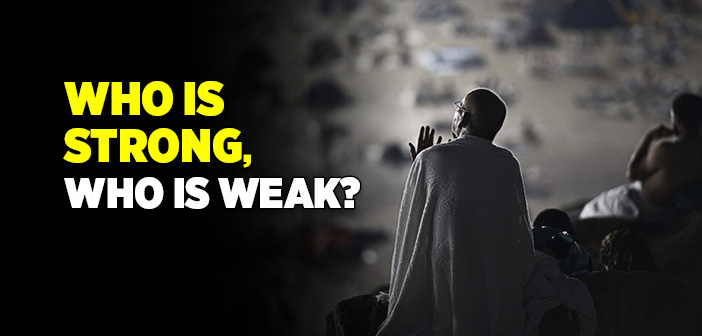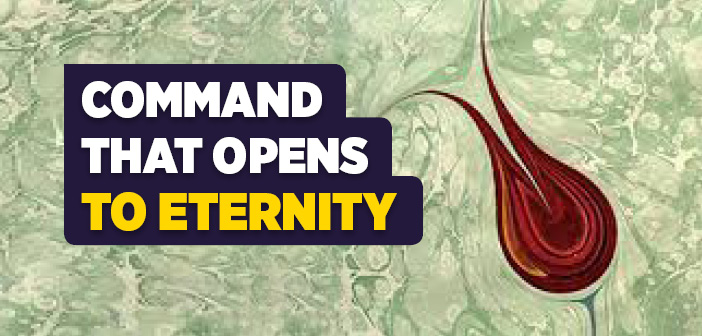Who is strong, who is weak?
Metaphysics has always trounced physics. The common characteristic of all tyrants who have relied on physical force is, therefore, weakness and fear. They are constantly haunted by an anxiety of fear and helplessness.
In contrast, a faithful person who defends the truth he believes in with his life and, if need be, walks to martyrdom without blinking an eye, is the strongest person of spirit and heart. A person who relies on the Almighty Allah and fills his heart with divine love is always strong.
Nurettin Topçu expresses this fact as:
“A closer inspection reveals that most of the so-called magnificent and superhuman figures which history has forced upon our imaginations as great men, are in fact vulgar and mundane characters.”
“Do not ever get too close Julius Caesar or Nero. You will see nothing but the qualms of a thief and the cowardice of a murderer.”
(In other words, to conceal their helplessness, these tyrants oppress their rightful adversaries.)
“Individuals who live unindebted to their egos, are the true scholars, artists, saints and prophets. The covetous men who humankind confuses for great men and the shepherds that mind the herd -the public masses- invariably take a stand against them.
For example;
- Roman Emperor Nero crucified the first Christians along with their chief, Saint Peter.
- Abbasid Caliph Abu Mansur whipped and tortured Abu Hanifah for rejecting his offer to become the grand judge.
- Napoleon slapped Volney.” (Nurettin Topçu, Yarınki Türkiye, Dergah Publications, Istanbul, 1999, p. 37-45)
Yet, it is these people exposed to the tyranny of brute force, who possess the real strength and power.
In the words below, Nurettin Topçu invites us to reflect on what the true power means:
“Is a man who searches for the source of power in the blood flowing in his veins, anything more than a skeleton graced by a flesh that is ultimately broken apart by the grass it digests?
- A wrestler flings a giant body to the ground.
- Nero’s henchmen throw bodies into the claws of wild animals inside a colosseum.
- Napoleon slaps philosopher Volney.
- A man with power makes heads roll with just one command.
- People with wealth banish beggars from their door.
A person who relies any of the earth’s powers know ways to the make the weak, who do not resort to these powers, crawl to their graves.
And you call this power? (…)
Undoubtedly, wild animals attack because they fear. Yet, they do not possess the capacity and strength to react in any other way. Yes, they are helpless. Is the trial wrought by the attack of a snake or a tiger any different from a rock collapsing on our heads? Yet, we never say that the ‘Rock is strong’. In that case, who is strong?
Only a human being who is free, independent from his ego, everybody else and the entire world, should be called strong. Is a person defeated by the wrath, grudge and lusts of his ego and whose behaviour is motivated by his resentments and ambitions, any different from a person who has fallen captive in the hands of another?
- One of most miserable captives ever recorded in history was Timur, who buried the guards of Sivas alive.
In contrast;
- Hallaj Mansur who was left hanging on a scaffold in Baghdad with his ears and nose pierced, was a free and strong man, as he prayed for the ignorant mob stoning him:
“Lord! Forgive them before you forgive me! (For they are unaware and ignorant of my state.)” (Nurettin Topçu, Var Olmak, Dergah Publications, Istanbul, 1999, p. 63-64)
Nurettin Topçu also goes on to describe the ultimate ends of these tyrants:
“On his deathbed, Alexander the Great sweltered under the cloud of ghastly apparitions.
Julies Caesar did not die singing the hymns of joy.
Napoleon lost, not at Waterloo, but the moment he slapped philosopher Volney.” Nurettin Topçu, Var Olmak, p. 16)
In contrast, the Ibn Masuds and Abu Hanifahs who were wronged yet possessed the power of the heart, seized the joy of both worlds.
In the Meccan period, the heart reigned supreme. This is what triumphed. Ibn Masud (RA) and his friends were strong of heart, while the pagans who could do nothing but to inflict torment upon them, were weak in the heart and utterly helpless. They therefore resorted to brute force. Nevertheless, the ‘good outcome belonged to the righteous.’
At the Battle of Badr, Abdullah ibn Masud (RA) disposed of Abu Jahl who had belittled him. He later moved to Kufa to spread Islam and convey the religion to younger generations. From the Kufa School he founded alongside other companions, there came the great Abu Hanifah.
Abu Hanifah was the greatest jurist not just of his era but of all time. This is why he was called Imam al-Azam, the Greatest Imam.
Abbasid caliph Abu Jafar al-Mansur wished to exploit Abu Hanifah’s power and fame in knowledge. He offered him the role of grand judge. This way, he could reinforce his reign and give every one of his decisions a spiritual aura, as if they were bore the stamp of approval of the great scholar himself.
However, to prevent his rulings from being exploited and distorted, Abu Hanifah rejected the offer.
When Caliph Abu Mansur failed to convince Abu Hanifah, he had him imprisoned and even whipped. Here;
- It was Abu Hanifah who was strong of heart,
- …and the caliph who was helpless and weak.
This scene has repeated itself numerous times throughout history.
Unable to respond to Abraham (AS), Nimrod had him thrown into a fire; yet the Almighty Allah who gives fire its burning quality, protected His friend (khalil) from it. What put out the fire was Abraham’s (AS) submission.
Likewise, the Pharaoh went rabid from frustration after the magicians who he had gathered to defeat Moses (AS) ended up believing the prophet; and as punishment, had them crucified and tortured to death.
The magicians had such strength of heart and spirit that even in the face of severe threats that would make the blood of an ordinary person run cold, they bravely and resolutely declared:
“Do what you wish! You can only have your say on earth. As for us, we shall return to our Lord (as martyrs)” (Ta-ha, 20:72) as they passed the test of faith in the best possible way.
- The first Christians thrown to the lions were extremely strong. Their oppressors were the losers.
- Habib al-Najjar who was stoned to death was strong. Even at the moment, he felt compassion towards his people, saying ‘if only they knew!’. Those who stoned him, on the other hand, were weak and powerless.
- Ashab al-Ukhdud who were thrown into pits of fire were firm and strong enough to walk to martyrdom without fear. Those who dealt them this cruelty were the losers and slaves to their egos.
Even while becoming martyred, they led to the guidance of many. People witnessing their strength of heart and resolution rushed to embrace faith.
The hardhearted mob who stoned the Prophet (SAW) as he was making tabligh in Taif, were also stuck in weakness and helplessness. To hide their weakness, they resorted to insults, cruelty and filth. Still, in the face of their cruelty, the Prophet (SAW) remained ever strong. He did not even curse them; but simply prayed for their forgiveness with the words:
“Lord! Forgive my people for they do not know!”
Sumayya (RA) who was callously tied up between two camels walking in opposite directions and martyred, was extremely strong. Her oppressors were weak.
A remarkable example is offered by the below episode from the tragedy of Maunah Well.
Source: BEING A GUIDING LIGHT, Osman Nuri Topbas, Erkam Publications
 Source: BEING A GUIDING LIGHT, Osman Nuri Topbas, Erkam Publications
Source: BEING A GUIDING LIGHT, Osman Nuri Topbas, Erkam Publications




